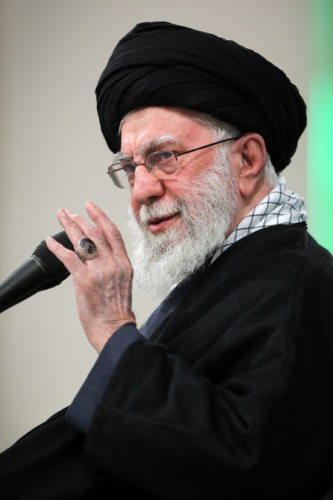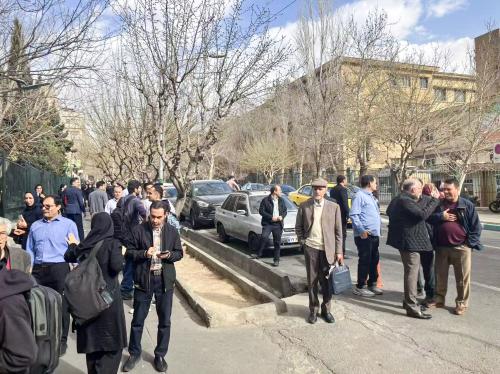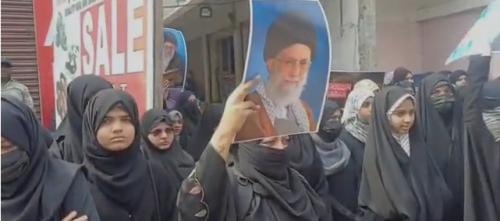By Manoj Thakur Sirsa (Haryana), June 29 (IANS/ 101Reporters): When the second wave of Covid-19 was washing over many parts of the country, seven villages in Haryana's Sirsa district remained untouched. Makha, Musli, Budhimedhi, Dhani Satnam Singh, Dogra Wali, Modi, and Joriya -- which do not have more than 5,000 people each -- followed basic practices and cooperated in their small way to keep the virus at bay. For instance, not a single person from Makha village ventures out without a mask, whereas cops have been rampantly penalising people for violations elsewhere in the Sirsa district. Makha sarpanch Veerpala Kaur proudly says that innate discipline has completely stalled Covid-19 in their village. "There isn't a single case in our village. It was possible because of adherence to three things - wearing a mask, attention towards sanitisation and social distancing. And the results are right in front of you," she said. Kaur added that the panchayat held many dialogues with the villagers over prevention. "The panchayat meetings were conducted by following social distancing norms. We decided to stall weddings and other public gatherings," she said. The villagers' sense of social responsibility made the implementation easier. Rules and cooperation Sarpanch Kaur's brother, Harchej Singh (38), made brief clips on Covid-19 awareness and circulated them on social media. The villagers cooperated with the initiatives. They asked their relatives not to visit their village. "Moreover, the villagers refrained from travelling out. If a person had to leave for important work, he/she would quarantine himself/herself upon returning. The measures were not followed due to pressure from an individual, but out of respect for the decision taken for the public good," he said. He added that the villagers believe in keeping a social promise. They have high regard for the decisions taken by the panchayat, and thus, they follow them ardently -- they feel it is their social responsibility. "Villagers come to know when a person violates the rule. Such a person is then socially boycotted and loses trust," Singh said. People from Budhimedhi village weren't allowed to attend public gatherings or travel to mourn a relative's death. In case they had to travel, they would have to quarantine upon returning. The doctors would test them. Such a person could only return home once he/she tested negative. Budhimedhi's residents cooperated with every such regulation. "As a result, there has not been a single case," said village sarpanch Sukhbaj Singh. Musli village resident Singh Chima said that people were not visiting the mandi during the lockdown. Since many vegetables are grown in the village, the residents decided to distribute them among themselves. "There were two advantages to this situation -- people did not have to step out for vegetables, and the home-grown produce was not spoiled. A few people from outside who come to sell vegetables did not arrive once they realised that we were self-sufficient," he said. Small hurdles to deal with Making everybody follow the safety principles came with their difficulties. Sarpanch Kaur of Makha village said that the villagers are staunch followers of traditions and follow a strict schedule, which they do not like to disrupt. "Covid-19 had started altering people's routines," she said. The sudden change has been unimaginable for Makha' senior citizens like Ramnivas Sharma. Before Covid-19 confined him to his home, he would spend his day with his friends in baithaks. "People of my age would gather in the morning and engage in banter all day. Tea, snacks, and lunch would be served in our baithaks. We wouldn't return home until late. With Covid-19, things changed drastically. We felt imprisoned in our homes. It was bizarre at first. But, we got slowly used to it," he said. Sharma added that staying at home had its benefits. "We, senior citizens, grew close to our kids as we spent lots of time with them for the first time. Now, time flies. It feels as if I have wasted a lot of time in the past in the company of hookah, when a better part of life is at home," he said. Sirach Sukhabaj Singh of Budhimedi Village from Sirsa deemed funerals the most difficult to regulate. In his village, when a person dies, people gather in support and solidarity. "Covid-19 did not allow any such gatherings. We reinforced the decision by allowing only the family to attend the final rights. When a person passed away, we wondered if the virus was responsible. The samples were sent to local government hospitals. The results always returned negative," he said. The good word Sirsa Deputy Civil Surgeon Buddh Ram lauded the seven villages for their approach and discipline. "They stayed free of the virus when the pandemic was gathering momentum in rural areas. Their techniques can be seen as a model for preventing Covid-19," he said. Social organisation network Youth 4 Change's director, Rakesh Dhul, said that such discipline is exemplary as it comes from the sector of Sirsa, which is protesting against the farm laws. "These seven villages have shown much restraint and discipline and prevented Covid-19 altogether. If other villages adopt Sirsa's methods, Covid-19 can be evicted from rural areas. Sirsa's residents have not only prevented themselves from harm but have imparted a lesson," he said. (The author is Chandigarh-based freelance journalist and a member of 101Reporters.com, a pan-India network of grassroots reporters.)
How this cluster of villages in Haryana managed to stay Covid-free
- by Rinku
- June 29, 2021 2 minutes

How this cluster of villages in Haryana managed to stay Covid-free.











